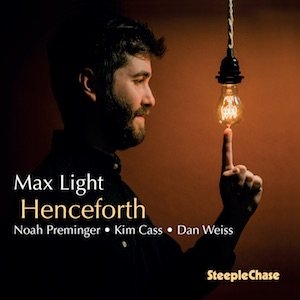Label: Out of Your Head Records, 2023
Personnel - Tomas Fujiwara: drums; Patricia Brennan: vibraphone; Tomeka Reid: cello.
Boston-born, Brooklyn-based drummer and composer Tomas Fujiwara has been a fixture of the creative jazz scene for about 15 years. His main projects as a leader and co-leader include the brass-guitar-drums sextet Triple Double, the quartet Illegal Crowns, and the trios Thumbscrew and 7 Poets. It’s with the latter group, which pairs him up with vibraphonist Patricia Brennan and cellist Tomeka Reid, that he returns with a tentatively triumphant work composed of five of his puzzling compositions and one collective improvisation. Pith follows the evolutionary path left by their debut album 7 Poets Trio (RogueArt, 2019) and is expertly designed with both compositional and experimental competence.
The unusual instrumentation helps to provide a wonderful escape to more conventional jazz, and the opening piece, “Solace” comes with churning ensemble playing, steadfast sweeping vibes, and cello pizzicato emulating rock power chords. There’s a break in the relentless flow at some point, creating a suspended moment that serves Reid’s solo.
“Swelter” also pulsates with energy and remarkable fluidity until its sultriness is broken. Embracing ambiguity but with vitality, this piece follows a curious architectural foundation with an intriguing sequence of 12 and 10-beat cycles that urges us to search deeper. Conversely, the lilting Andrew Hill-esque “Josho” takes a straightforward trajectory, becoming more accessible to wider audiences. However, it is no less intriguing in the sonic choices and in the way the threesome interlock their sounds for a notable whole.
“Resolve” and “Breath” are two different Fujiwara sonic sculptures. The former is immersed in chamber jazz tranquility and created by gentle brushwork, poetic vibes, and melodic cello pensiveness; the latter is elegantly harmonized, containing bold synchronism and refraction, congruent rhythmic reflexes pursuing the angular unisons, and an intuitive communication between Reid, who solos with downright passion, and Brennan who answers her various suggestions with big ears and accuracy. The record wouldn’t be complete without a collective improv: “Other” is etched by harmonic complexity, an enduring drum stream, and various cello timbres, ending with throbbing [mallet-driven pulsations].
With a refreshing openness to new sounds and textures, these masters of the atmosphere reveal an exquisite sense of narrative that makes this music distinctive. We’ll keep listening to this while waiting for their next installment.
Favorite Tracks:
01 - Solace ► 04 - Josho ► 06 - Breath








































